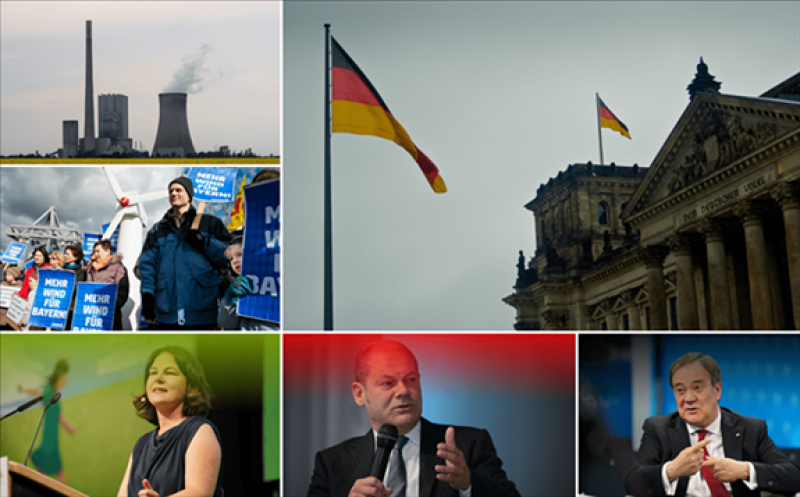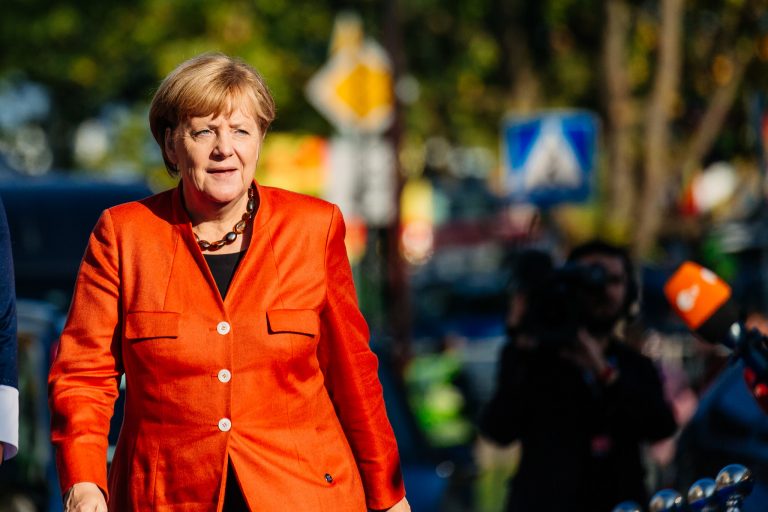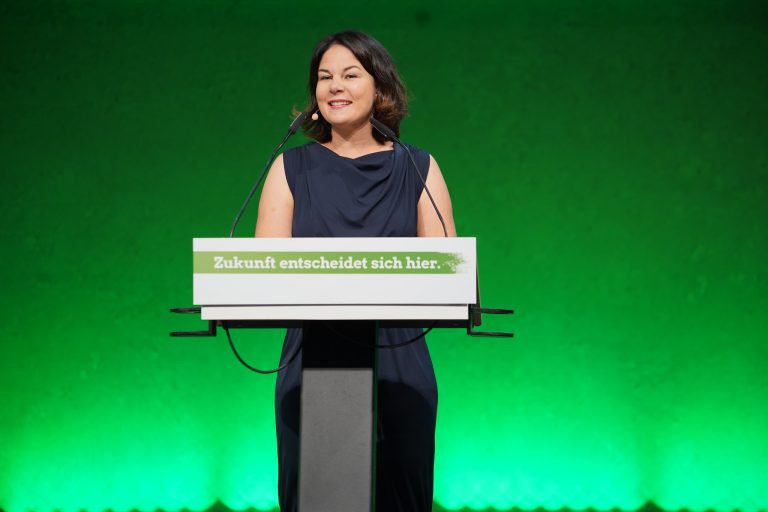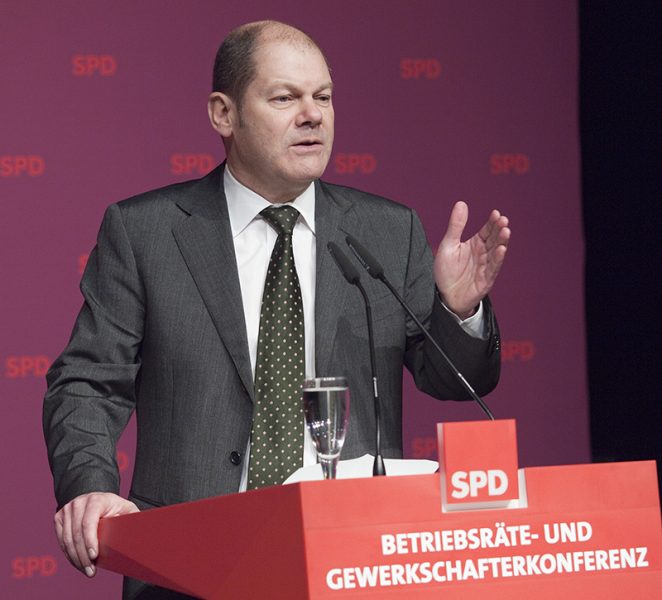Chancellor Angela Merkel will serve her last day on 26 September 2021, ahead of the German federal election. In 2018, Merkel announced she would not seek re-election after 16 years. The Bundestag will soon have a new leader overseeing decarbonisation, COP26, and the energy affairs of an economic powerhouse.

The contest remains close and healthy. Merkel’s incumbent party, the Christian Democratic Union (CDU), has faced new opposition from Alliance 90/The Green Party (“The Greens”). Both parties have fought over energy issues, which have risen up the agenda with the increasing global pressure to decarbonise.
The sixth-largest party, the Greens saw their support more than double in opinion polls throughout 2018 and 2019. As environmentalism moved further into political focus, the party briefly saw its support match the CDU. This has happened again in 2021, and the Green Party hope to capitalise on this in the upcoming elections.
The Covid-19 pandemic caused voters to rally round the CDU government as the virus spread through Germany. In 2021 however, controversy over the acquisition and distribution of Covid-19 vaccines brought the CDU’s overwhelming popularity within reach of other parties.
Severe flooding across west Germany then gave the CDU another swell of support. However, it also pushed climate action into focus, with Merkel stating: “We will oppose this force of nature with policies that better address climate change than those of recent years. We have to speed up the fight against climate change.”
As this support wanes, the Social Democratic Party (SPD) has surged upward in polls, bringing them level with the CDU and the Greens. The SPD is the only other party to lead Germany’s Government since World War Two, with six chancellorships compared to the CDU’s 14.
Germany’s proportional electoral system makes it difficult for parties to have absolute control over parliament, instead encouraging coalitions and co-operation. As such, the SPD currently governs in coalition with the CDU and its Bavarian counterpart. Its politics make the party a likely coalition partner if, as seems likely, the elections do not have an outright winner.
The common ground: how German energy policy will change after the election
In their manifestos, all three of the top parties agree on advancing Germany’s climate neutrality goals. In the previous parliament, the SPD and CDU enshrined a 2050 carbon neutrality target in law, in line with the Paris Agreement.
After the election, both of the parties currently overseeing German energy policy would advance this to 2045. They would also set targets of cutting emissions by 65% before 2030, and 88% by 2040, compared to 1990 levels. In comparison, the Greens would aim to eliminate more than 70% by 2030, reaching net-zero emissions by 2040.
 After her retirement at the next election, Angela Merkel’s party may lose control of German energy policy. Credit: Arno Mikkor.
After her retirement at the next election, Angela Merkel’s party may lose control of German energy policy. Credit: Arno Mikkor.
The top three also agree on easing the application process for solar installations. The CDU specifies it would simplify the process and move it online, while making a “real-time energy register”, similar to existing land registries.
All parties also plan to put solar systems on public and commercial buildings. The SPD promises “a solar system on every supermarket, school, and town hall”, mandated by planning laws. They also promise to develop newer forms of solar, “promoting photovoltaic cells in building envelopes and on agricultural land.”
The Greens and the CDU both want to place more renewable generation alongside highways and railways. The CDU would fund public installations from the federal budget, as part of a wider solar funding package. Meanwhile, the Greens have set a goal of 1.5 million solar roof installations during the next parliament. They aim to “make solar roofs the standard roofs”, with specific targets for utility solar additions.
All three parties focus on the job-creation potential of renewables and new industries, in similar tone to other western nations. All three single out hydrogen as a growth industry, and have plans to expand the country’s hydrogen infrastructure.
Germany has already taken a leading role in utility-scale green hydrogen development. The SPD want the country to become the world’s leading hydrogen market by 2030, backing innovation for hydrogen-powered trains and goods vehicles.
The Greens have pledged a “comprehensive funding program” for infrastructure but accept that Germany would need to import hydrogen to meet demand. They would aim to import from countries using renewables, while developing import infrastructure. The party’s manifesto says that hydrogen must not become “a delay tactic but should actively contribute to climate neutrality”.
The CDU wants to establish hydrogen innovation centres, investigating the production of electrolysers and fuel cells. Its hydrogen strategy would use blue hydrogen “in the transition period”, and support the H2 Global scheme to fund hydrogen development in Germany. Its manifesto mentions promoting international hydrogen trade and converting existing systems to hydrogen, though without detail.
Merkel retires but the CDU remains the party to beat
While it has lost some ground to new parties, the CDU remains the largest single party with a strong base of support. New leader Armin Laschet is the man to beat, poised to take the chancellor’s office until 2025.
 CDU leader Armin Laschet on the campaign trail in August 2021. Credit: Dirk Vorderstraße under CC BY 2.0.
CDU leader Armin Laschet on the campaign trail in August 2021. Credit: Dirk Vorderstraße under CC BY 2.0.
In a new parliament, the CDU would implement “carbon adjustment tariffs” on trade. In line with World Trade Organisation rules, this would tax goods based on the emissions of their source country. A similar measure is currently under discussion in the EU parliament.
The bloc already has one of the strongest carbon emissions trading markets, which the CDU would like to see implemented worldwide. Furthermore, it proposes expanding emissions trading to cover aviation, heating, and shipping. Relatedly, the party proposes strengthening the UN’s ability to arbitrate international climate and energy disputes.
It also proposes sharing technical knowledge of renewable technologies with developing countries. This would work alongside another policy, proposing that “international climate successes should be taken into account in national carbon footprints”. The CDU hopes to propose this idea at the upcoming COP26 climate conference in Glasgow.
Cutting reporting regulations and promoting CCS
Domestically, the CDU plans to fund research and development of carbon capture and storage (CCS) technology “together with European partners”. It would also “promote” carbon utilisation and development of a CO₂ infrastructure.
Further on in its manifesto, the CDU takes aim at statistical reporting for businesses, while not explicitly mentioning emissions and carbon reporting. In power, the party would aim to “reduce the reporting obligations for official statistics by 25%”, though it does not say how it would measure this.
The party also wants to reduce regulatory costs of the transmission the system. A CDU government would “examine” competition and investment within networks and aim to accelerate the building of infrastructure.
Expansion of both onshore and offshore wind generation receives a mention. Along with other renewables, wind would benefit from proposed training schemes to improve the country’s renewable skills base.
German Greens target renewable energy before next election
The Greens promise an annual land-based wind power expansion of at least 5GW-6GW, growing to 7GW-8GW “by the mid-2020s”. The party aims to make 2% of on shore land available for wind power via changes to the planning process. Offshore, the party would aim for 35GW of total generation by 2035. The party hopes to counter generation surpluses with energy storage facilities and green hydrogen production.
 Annalena Baerbock has led the Green Party during its rise. Credit: Green Party CCBYSA2.0.
Annalena Baerbock has led the Green Party during its rise. Credit: Green Party CCBYSA2.0.
Solar would see an immediate target of 10GW-12GW of annual expansion under the Greens. Later in the decade, this would increase to 18GW-20GW. To aid this, the party hopes to eliminate barriers to investment via the planning system.
While current legislation would see the end of German coal generation by 2038, the Greens want to accelerate this to 2030. To facilitate this, the party would only approve new gas-fired plants “if they are absolutely necessary, and are planned and built to be ready for hydrogen conversion.” New gas terminals would not receive approval, and the party would stop the use of Nord Stream 2.
Encouraging minimum carbon pricing in the EU
Internationally, the Greens would advocate for a large reduction in the amount of emissions allowed under the EU Emissions Trading Scheme (ETS). “If that doesn’t happen quickly enough,” the party states, “we will rely on a national minimum CO₂ price in the ETS of €60. This will ensure that coal can be phased out as early as 2030.” Earnings from this CO₂ pricing would offset current surcharges on electric vehicles.
The Greens would also include emissions criteria in government procurement contracts and establish federal data centres powered entirely by renewables. Many renewable turbines require rare earth metals, sometimes mined in dangerous and exploitative conditions. The Green Party hopes to promote human rights in the extraction of these metals, and use alternatives where possible, though it does not say how it would do this.
The SPD rises to become likely coalition partner
The SPD’s climate goals rely on deals made by the previous CDU/SPD government to phase out coal power by 2038. This forms part of the SPD’s plan to make deals with regional governments in to implement energy reform.
 Olaf Scholz, leader of the SDP. Credit: SDP, CCBY2.0.
Olaf Scholz, leader of the SDP. Credit: SDP, CCBY2.0.
The government also legislated for the end of nuclear power in the country. This would help toward the SPD’s proposed target of generating all Germany’s electricity from renewable sources by 2040.
Unspecified investment in renewable manufacturing would aim to scale up the country’s power industry. Alongside this, the SPD hopes to grow Germany’s battery production and recycling industries, as well as digitise power grids. “Tailor-made laws” would aim to prevent German industries moving abroad as the government gradually tightens environmental regulation.
“Adding enough generation to power Hamburg every year until 2030”
The SPD’s manifesto reads: “Up to 2030, we will need around 10TWh of electricity generation additions annually, the equivalent of the consumption of Hamburg. Therefore, we need a decade of expansion for renewables, […] digitising power grids, increasing energy efficiency, building storage technologies, and developing hydrogen production and transport.”
German utilities currently charge energy consumers to fund renewable developments across the country’s multiple grids. This has had the unpopular consequence of raising energy bills. The SPD would negate this by paying the levy from federal government budgets. Similarly, an SPD government would pay the surcharge on electric vehicles from federal funds.
The SPD would also like to expand electric vehicle chargers faster than demand grows, with the same approach to electric grids and hydrogen networks. Other, less detailed development changes would “motivate landlords to modernise”, aiming for five million new heating systems, such as heat pumps, installed by 2030.